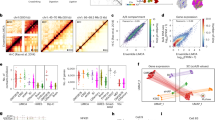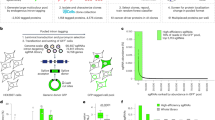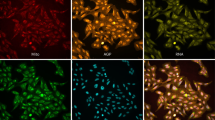Abstract
GENETIC analysis has been used successfully for identifying the elements responsible for biological processes1,2, and understanding the logic of their interactions. This approach has, however, been little used in the study of morphogenesis in multicellular organisms, chiefly because of a dearth of viable mutants and the difficulties of interpreting the altered primary gene function from the mutant phenotype. The existence of pleiotropy in particular makes this analysis difficult3,4. An alternative approach would be to study the effect of mutations on individual cell behaviour5. This approach depends on the well founded assumption that normal morphogenesis results from the ordered integration of discrete cell autonomous functions. This can be done in Drosophila in genetic mosaics, where the heterozygous, phenotypically wild-type individual is a carrier of clones of homozygous mutant cells. This approach has the advantage that morphogenetic mutants, even if they are lethal to the individual, can be detected, studied and interpreted directly at the cellular level.
This is a preview of subscription content, access via your institution
Access options
Subscribe to this journal
Receive 51 print issues and online access
$199.00 per year
only $3.90 per issue
Buy this article
- Purchase on Springer Link
- Instant access to full article PDF
Prices may be subject to local taxes which are calculated during checkout
Similar content being viewed by others
References
Beadle, G. W., and Tatum, E. L., Am. J. Bot., 32, 678 (1945).
Epstein, R. H., et al. Cold Spring Harb. Symp. quant. Biol., 28, 375 (1963).
Hadorn, A., and Letalfaktoren, G., Thieme Vlg. Stuttgart. (1955).
Grüneberg, H., The genetics of the mouse, 2nd ed. (Nijhoff, The Hague, 1952).
Garcia-Bellido, A., in Ciba Found. Symp. 29, Cell Patterning, 161 (Associated Scientific London, 1952).
Judd, B. H., Shen, M. W., and Kaufman, T. C., Genetics, 71, 139 (1972).
Hochman, B., Genetics, 67, 235 (1971).
Ripoll, P., and Garcia-Bellido, A., Nature new Biol., 241, 15 (1973).
Bryant, P., Devl Biol. 22, 389 (1970).
Garcia-Bellido, A., and Merriam, J. R., Devl Biol., 24, 61 (1971).
Garcia-Bellido, A., Ripoll, P., and Morata, G., Nature new Biol., 245, 251 (1973).
Garcia-Bellido, A., and Dapena, J., Molec. gen. Genet., 128, 117 (1974).
Morata, G., and Ripoll, P., Devl Biol., 42, 211 (1975).
Lindsley, D. L., and Grell, E. H., Carnegie Instn Wash. Publ., No. 627 (1968).
Lewis, E. B., and Backer, F., Inf. Serv., 43, 193 (1968).
Ferrus, A., Genetics, 79, 589 (1975).
Author information
Authors and Affiliations
Rights and permissions
About this article
Cite this article
FERRÜS, A., GARCIA-BELLIDO, A. Morphogenetic mutants detected in mitotic recombination clones. Nature 260, 425–426 (1976). https://doi.org/10.1038/260425a0
Received:
Accepted:
Issue Date:
DOI: https://doi.org/10.1038/260425a0
This article is cited by
-
Clinical and Molecular Insights into Tuberous Sclerosis Complex Renal Disease
Pediatric Nephrology (2011)
-
Glomerulocystic kidney disease
Pediatric Nephrology (2010)
-
Renal involvement in tuberous sclerosis complex and von Hippel–Lindau disease: shared disease mechanisms?
Nature Reviews Nephrology (2009)
-
TSC1–TSC2: a complex tale of PKB-mediated S6K regulation
Nature Cell Biology (2002)
-
Homoeotic genes, compartments and cell determination in Drosophila
Nature (1977)
Comments
By submitting a comment you agree to abide by our Terms and Community Guidelines. If you find something abusive or that does not comply with our terms or guidelines please flag it as inappropriate.



